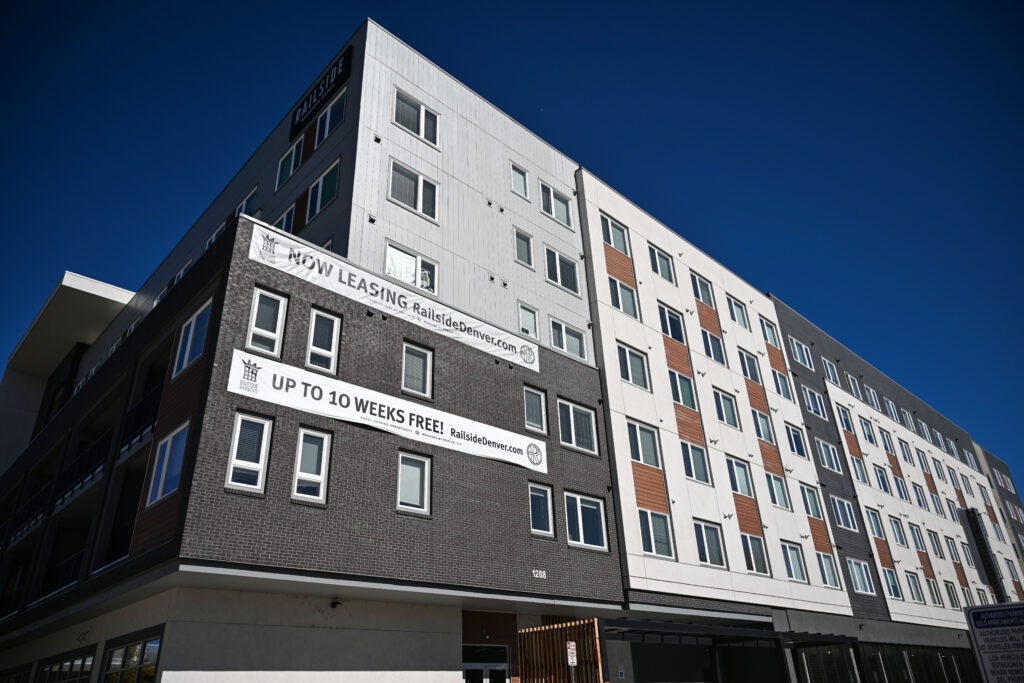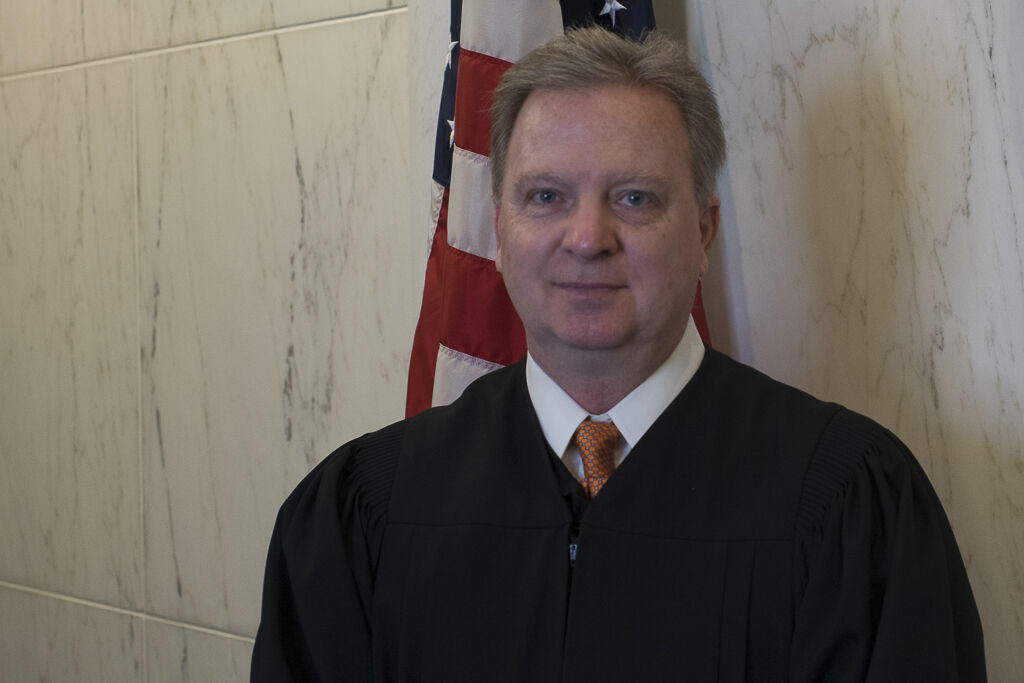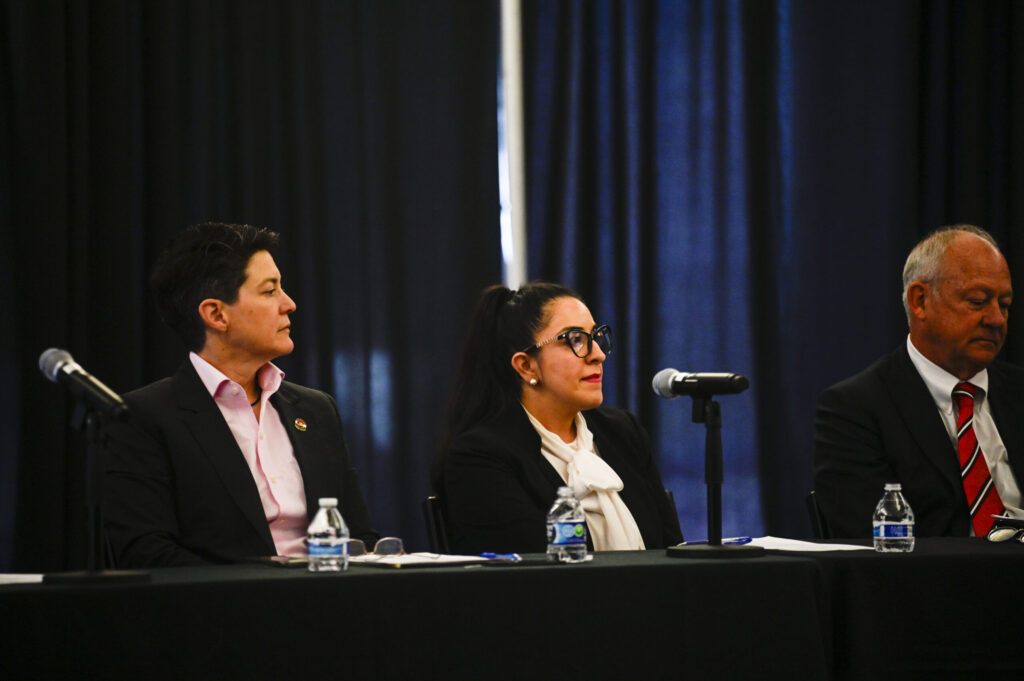Colorado Supreme Court committee advances tenant-friendly rule change

The Colorado Supreme Court’s Civil Rules Committee advanced a proposal on Friday that would make it easier for tenants facing eviction to respond to and learn about their landlord’s initial court filing.
Several members of the committee were torn about the wisdom of the relatively narrow change now headed to the full court. State law treats an eviction case as beginning with the landlord’s complaint against the tenant. As proposed, the rule would require a court to assign a case number before the landlord serves the tenant with a summons.
At the rules committee’s previous meeting in September, members heard the problem arises for “batch filings” of evictions by law firms, which might submit hundreds of complaints at once. The result is that a tenant may receive their summons before a court clerk has had time to process the eviction complaint, creating confusion for the tenant who has no case number to reference.
“It was pointed out that sometimes defendants will take time off of work to go to the courthouse, but they either can’t get information about their case, or in some instances, they may be told that their case has not been filed,” Jose L. Vasquez, an eviction attorney who led the effort to change the rule, wrote to the committee in an Oct. 30 memo.
He elaborated to the committee that in Denver, for example, the court will not assign a case number upon filing, but will do so upon review after 24-48 hours.

“I don’t think very many people would think you can file a case and just not have a case number. I think the fact that landlords can do that and there’s a way they can do it in bulk and not have case numbers, it doesn’t seem like that should drive the discussion,” said committee member Mary Linden, a civil litigator in Colorado Springs. “I don’t know why we wouldn’t require a case number.”
Victor Sulzer, whose firm bills itself as “Colorado’s No. 1 Eviction Law Firm” in representing landlords, called the proposed change “a solution for a problem that does not exist.” He said he files evictions in bulk but includes QR codes on the paperwork so tenants can access case information through his office.
“There’s no evidence that folks cannot file an answer due to the lack of a case number,” he said, adding that some jurisdictions only accept eviction filings on certain days of the week. The upshot is that delays in assigning case numbers can cause landlords to miss the window for serving the tenant with a summons.
“They keep saying the only evidence that is out there is anecdotal that these problems are happening,” responded former Magistrate Lisa Hamilton-Fieldman. “We have brought forth a number of, in fact, anecdotes that we can verify.”
She added that to the extent certain courts have protocols that make it challenging to implement the rule, “It’s not the duty of this committee to go through every jurisdiction and say, ‘This jurisdiction does it differently. Therefore, we can’t enact any rule.'”
Court of Appeals Judge Jerry N. Jones, who chairs the rules committee, cautioned against overstepping the judiciary’s boundary and actually changing state policy, which is a task for the legislature. He said that if he had to decide a case asking whether the law mandates a case number at the outset for evictions, “My response in an opinion would be: ‘The legislature didn’t say that.'”

“It’s a judgment call for the Supreme Court if we approve this rule and the justices feel like it’s too close to legislative or not,” countered Jefferson County District Court Judge Christopher Zenisek.
Justice Richard L. Gabriel, the Supreme Court’s liaison to the Civil Rules Committee, agreed that his court would screen any proposal to ensure it is within the judiciary’s bounds. He noted that historically, rule proposals have surfaced that the justices immediately viewed as legislative, not procedural.
“To date, that hasn’t been a concern anyone has raised in my court that I can recall” about the eviction proposal, Gabriel added.
The committee voted 12-8 to forward the proposal to the Supreme Court. A staff member for the court said the committee did not record the roll call of each person’s vote.












